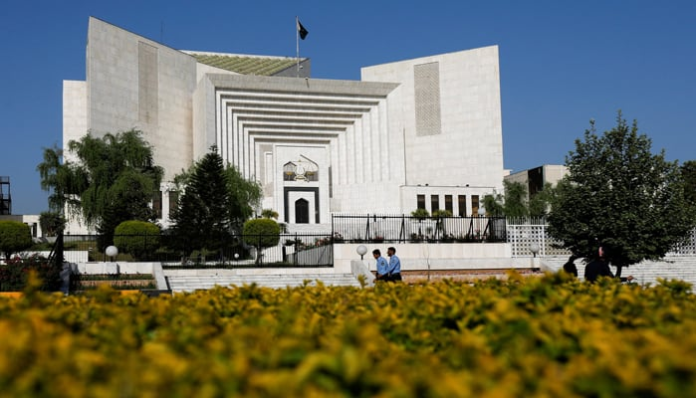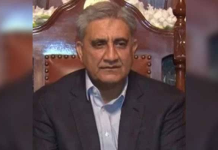Additional registrar did not deliberately violate court order, reads judgment of two-member bench
ISLAMABAD: The Supreme Court withdrew the contempt notice against Additional Registrar (Judicial) Nazar Abbas and dispatched the file to Chief Justice of Pakistan (CJP) Yahya Afridi for the constitution of full court on the powers of committees that decide to fix cases before benches.”We find that he [Additional Registrar (Judicial)] did not deliberately avoid the fixation of the cases before the bench as directed in the court order [….] The show-cause notice issued against him for contempt proceeding is discharged,” read the 20-page verdict issued by the two-member bench comprising Justice Mansoor Ali Shah and Justice Aqeel Ahmed Abbasi.
The case is concerned with the legal conundrum arising out of erred fixing of cases — which included a challenge to the vires of Custom Act 1969 — by Additional Registrar (Judicial) Nazar Abbas, who wrongly fixed cases meant for the Supreme Court’s constitutional bench instead of a regular one.
During the subsequent hearings, it was revealed that the case was not fixed for hearing and was, instead, later transferred to the constitutional bench, after which the the two-member bench comprising Justice Shah and Justice Aqeel Ahmed Abbasi issued a show-cause notice to Abbas.
n the judgment today, the court accepted the additional registrar’s argument — submitted before the court in his reply to the show-cause notice — that he had no authority to constitute the bench of judges and at most inform the competent authority, which he did in a timely manner.
“The alleged contemner’s failure to fix the case before the Bench specified in the court order, therefore, does not constitute a contumacious act on his par,” said the verdict.
“Upon examining the case of the present alleged contemner, the Additional Registrar (Judicial) of this Court, we find that he did not deliberately avoid the fixation of the cases before the Bench as directed in the court order.
“There is no evidence to suggest that he had any personal interest in the matter or had connived with any of the parties to the case, nor did he act with the intention of causing damage to any of the parties to the case. There is no indication of mala fide intent in his actions,” it adds.
‘No authority to withdraw case’
On the much contentious issue of the powers of the SC (Practice and Procedure) Act, 2023 and the constitutional bench committee constituted under Article 191-A, the two-member bench raised two separate questions of law.
The first issue it pondered upon was whether the said committees had the authority to withdraw a case from a bench in which cognisance has already been taken by a regular bench.
Answering this in the negative, the judgment said that the well-established practice that once a case was assigned to a bench and that bench has taken seisin — assumed jurisdiction — of the matter and partly heard it the chief justice could not “unilaterally withdraw it and reassign it to another bench except under specific, judicially recognised circumstances”.

















